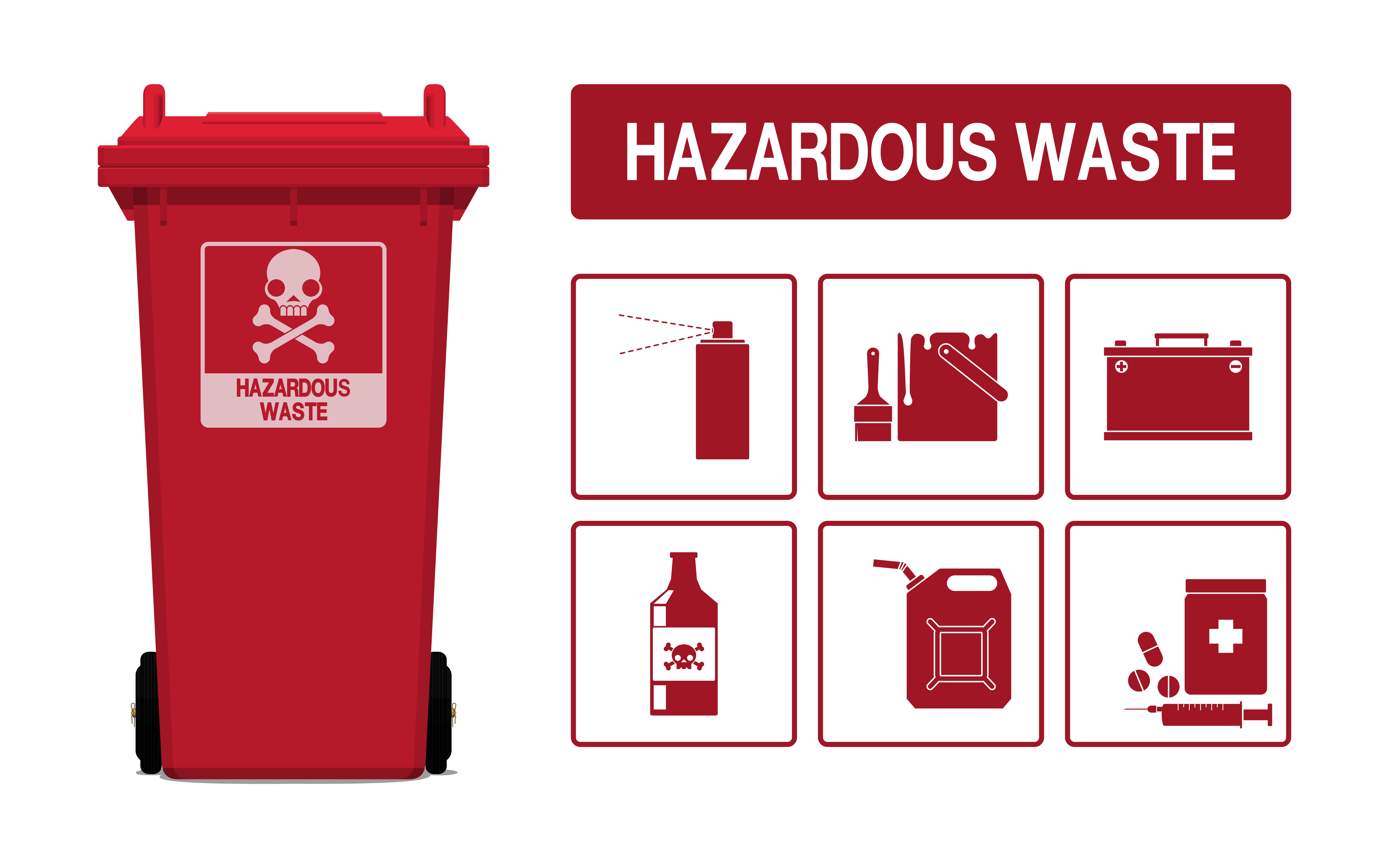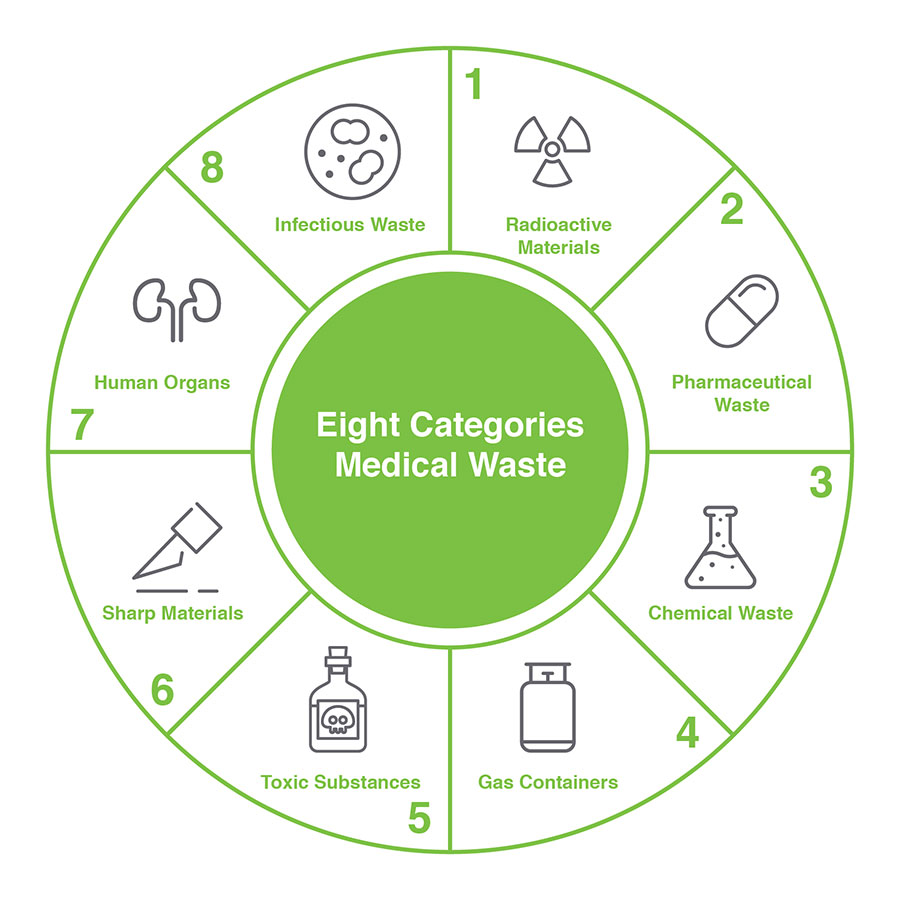Medical Waste Removal Proficiency: Where Service Excellence Fulfills Health And Wellness Specifications
Medical Waste Removal Proficiency: Where Service Excellence Fulfills Health And Wellness Specifications
Blog Article
The Significance of Correct Medical Waste Disposal: A Guide for Medical Care Facilities
Correct medical garbage disposal is a vital facet of health care center monitoring, making sure the security and health of clients, staff, and the environment. From recognizing the various classifications of clinical waste to conforming with regulatory requirements, health care facilities must adopt efficient waste partition techniques and pick ideal disposal techniques. Nonetheless, the value of appropriate clinical waste disposal surpasses mere conformity; it is a responsibility that calls for continuous training and education and learning for personnel. In this overview, we will certainly discover the numerous aspects of clinical waste disposal and highlight the vital steps that health care facilities must take. By implementing these techniques, health care centers can mitigate threats, shield public wellness, and contribute to a cleaner, more secure environment.
Comprehending Medical Waste Categories
Comprehending medical waste classifications is essential for appropriate disposal in medical care centers. Medical waste is a wide term that incorporates various types of waste produced in health care settings, such as centers, medical facilities, and research laboratories. Categorizing clinical waste assists make sure that it is dealt with, stored, and disposed of safely and according to suitable guidelines.
There are a number of categories of medical waste that health care centers require to be familiar with. These classifications consist of contagious waste, sharps waste, pharmaceutical waste, chemical waste, and radioactive waste (medical waste disposal services with WasteX). Each group has particular characteristics and requires various disposal methods to decrease the danger of harm to medical care workers, people, and the environment
Transmittable waste, for example, refers to lose polluted with possibly contagious materials, such as blood, body liquids, and cells. Pharmaceutical waste consists of ended or unused medications, while chemical waste is composed of dangerous chemicals utilized in medical procedures.
Compliance With Regulatory Demands
Healthcare facilities must make certain conformity with regulative demands for appropriate clinical garbage disposal. Regulative bodies, such as the Epa (EPA) and the Occupational Safety And Security and Wellness Management (OSHA), have actually developed laws and standards to secure public wellness and the setting. These guidelines lay out the appropriate handling, storage space, transport, and disposal of clinical waste.
Conformity with regulatory requirements is important for medical care centers to prevent legal penalties, reputational damage, and potential damage to human wellness and the environment. Failing to adhere to these policies can lead to penalties, legal actions, and also the suspension or cancellation of running licenses.
To make sure conformity, healthcare facilities should develop extensive waste management programs that include personnel training, appropriate waste segregation, and making use of proper containers and tags. Routine audits and inspections should likewise be performed to identify any type of non-compliance problems and address them quickly.
It is vital for healthcare facilities to stay up to date with modifications in policies and upgrade their waste management methods appropriately. This can be accomplished by actively keeping an eye on updates from regulative bodies and taking part in training programs and workshops.
Implementing Efficient Waste Partition Practices
To ensure appropriate clinical waste disposal, medical care centers need to carry out reliable waste partition practices. Waste segregation is an important action in the general waste management process, as it assists decrease the risk of infection, stops cross-contamination, and guarantees the safe disposal of various kinds of waste. Effective waste partition techniques entail dividing clinical waste right into different classifications based upon its characteristics and potential dangers.
One common practice is the segregation of sharps waste, such as scalpels and needles, from various other types of clinical waste. Sharps waste need to be positioned in puncture-resistant containers to avoid injuries and prospective infections. In addition, unsafe waste, such as chemicals and drugs, should be separated from basic medical waste to stop you can look here ecological contamination.
Proper labeling and color-coding of waste containers are essential for reliable waste partition. Clear and visible labels need to be positioned on each container to indicate the sort of waste it has and any special delivery demands - medical waste disposal services with WasteX. In addition, color-coding can be utilized to separate in between different waste categories, making it simpler for health care team to get rid of and identify of waste properly
Routine training and education and learning for medical care personnel is crucial for the successful implementation of waste segregation methods. Personnel must be enlightened on the various waste classifications, correct partition methods, and the relevance of following waste management procedures. This will certainly aid guarantee compliance and consistency in waste partition methods throughout the facility.
Deciding On Appropriate Disposal Approaches
Appropriate choice of proper disposal methods is necessary in making sure the eco responsible and safe management of clinical waste in medical care centers. Healthcare facilities produce a selection of medical waste, consisting of sharps, contagious waste, pharmaceutical waste, and chemical waste - medical waste removal. Each sort of waste calls for details disposal methods to reduce the risk of contamination, injury, and ecological harm
One common disposal technique for medical waste is incineration. Incineration includes the regulated burning of waste at high temperatures.

Chemical disinfection is one more method used for sure kinds of medical waste, such as pharmaceutical waste. This approach uses chemicals to reduce the effects of or damage contaminants. It is essential to choose chemicals that are environmentally friendly and secure.
Sometimes, land fill disposal may be ideal for non-hazardous clinical waste (medical waste disposal services with WasteX). Correct segregation and packaging are important to prevent leakage or contamination.
Inevitably, health care centers should very carefully review the qualities of their medical waste and pick ideal disposal methods that focus on safety and security, ecological defense, and regulative compliance. Normal training and surveillance are vital to make certain that health care personnel browse around this web-site adheres to proper disposal protocols.

Training and Educating Team on Correct Disposal Procedures
Team education and training play a crucial duty in making certain the appropriate disposal of medical waste in health care facilities. It is crucial that all team member, consisting of doctors, registered nurses, service technicians, and assistance team, obtain thorough training on appropriate disposal treatments. This training needs to cover the different kinds of medical waste, their possible dangers, and the proper approaches for taking care of, segregating, and throwing away them.
One of the key goals of personnel education and learning and training is to make certain that all health care specialists recognize the importance of correct disposal procedures and the potential effects of improper waste management. They require to be knowledgeable about the risks connected with clinical waste, such as the transmission of infections and the contamination of the atmosphere. medical waste removal services. By comprehending these dangers, personnel will be much more inspired to follow proper disposal protocols and take the necessary precautions to safeguard themselves, their associates, and the community
Training should additionally cover making use of individual protective tools (PPE) and the correct methods for handling clinical waste. Employee should be enlightened on exactly how to identify and segregate various kinds of waste, such as sharps, infectious waste, and hazardous chemicals. They must additionally be educated on the correct use waste containers, such as sharps containers and biohazard bags, along with the importance of labeling and sealing these containers properly.
Furthermore, personnel education and learning and training should include normal updates and correspondence course to guarantee that medical care specialists remain educated concerning the current policies and finest methods in medical waste disposal. This continuous education and learning is essential to maintain a high level of understanding and compliance among employee.
Conclusion
To conclude, appropriate medical garbage disposal is of utmost value for medical care centers. Comprehending the various categories of medical waste and abiding by check these guys out regulative needs makes sure the safety and health of both medical care employees and the general public. Implementing efficient waste partition techniques and selecting suitable disposal methods are crucial in avoiding the spread of contagious diseases and protecting the atmosphere. Lastly, training and educating team on proper disposal treatments is essential for keeping a clean and safe medical care center.
From understanding the different classifications of medical waste to abiding with regulative needs, healthcare centers have to adopt efficient waste partition techniques and choose proper disposal approaches. These categories include contagious waste, sharps waste, pharmaceutical waste, chemical waste, and radioactive waste.To make certain appropriate medical waste disposal, healthcare facilities must execute efficient waste partition techniques. Waste segregation is a crucial step in the general waste management process, as it assists minimize the danger of infection, prevents cross-contamination, and ensures the safe disposal of various types of waste. Healthcare facilities create a selection of medical waste, consisting of sharps, transmittable waste, pharmaceutical waste, and chemical waste.
Report this page